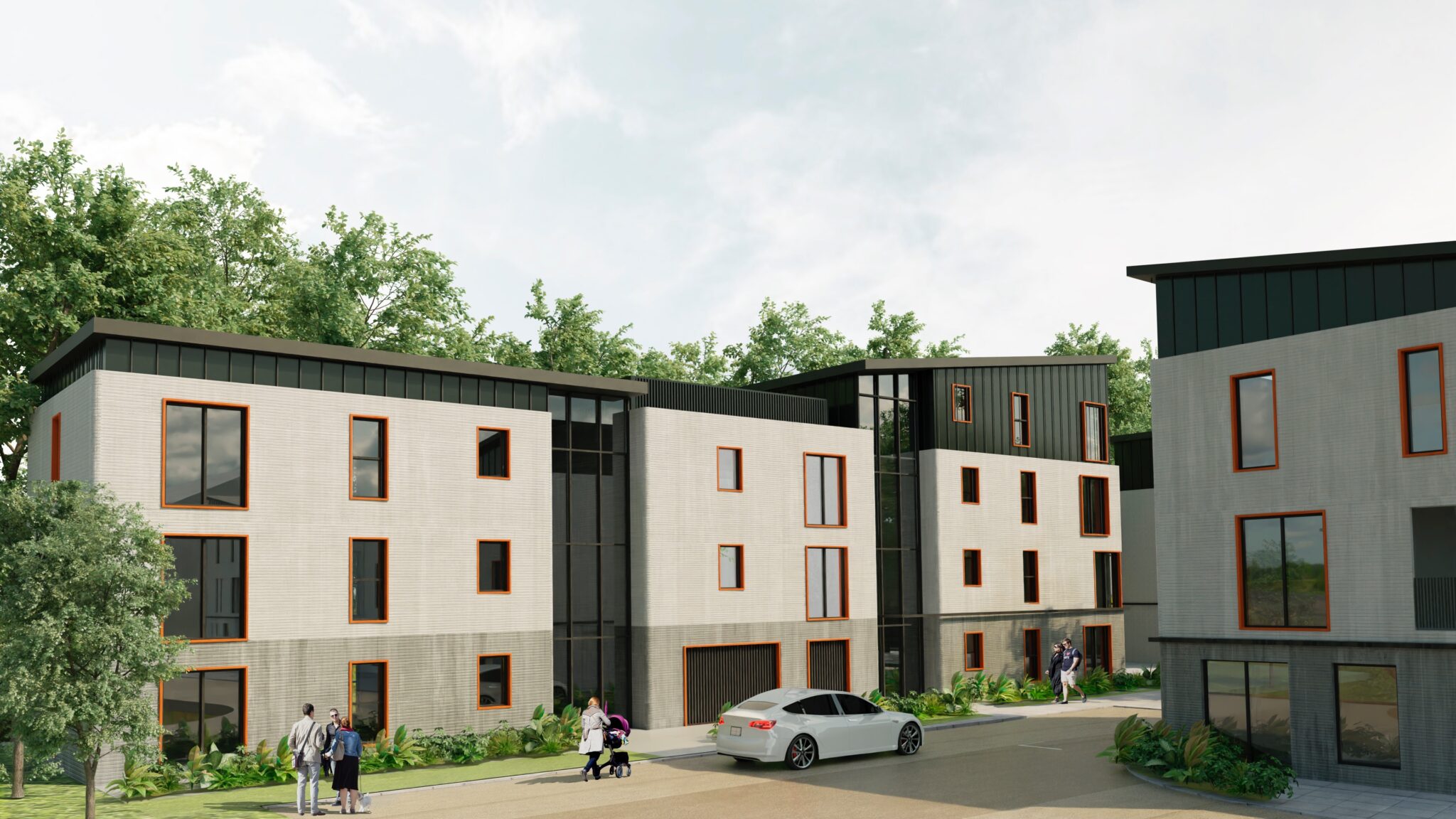Accrington and Rossendale College is supporting a ‘first of its kind’ home-building project to help combat the nation’s housing crisis.
Thanks to the charity group Building for Humanity, innovative modern technology and Accrington and Rossendale College, proposals to build an eco-housing estate for homeless veterans in Accrington are now well under way, with a hi-tech element.
The project – a first of its kind in the UK – will utilise advanced 3D concrete printing (3DCP) technology in order to achieve quicker, more affordable and more sustainable housing.
The £6m scheme, to be built in Accrington, Lancashire, will house homeless veterans and low-income families in 46 eco homes that can each be ‘printed’ in weeks. It seeks to build a 100 per cent affordable, ‘zero carbon’ housing scheme including a community training hub, communal growing spaces and private and communal gardens.
The concrete 3D printer, which is essential to the project’s revival, has been housed at Accrington and Rossendale College, where technical experts have been testing and calibrating it ready for its primary use on the new housing project.
The support and facilities at the College have enabled the breakthrough that will greatly accelerate the uptake of this technology within the construction sector. The College will also further support the technology by facilitating a 3DCP Introduction Course on 21st October, which will also be the first of its kind in the UK.
The proposed development will be the first 3DCP residential project in the UK, and when completed the largest such development in Europe. It will demonstrate the benefits that 3DCP technology can bring in terms of cost, time, quality, and sustainability, and offers an innovative solution to help tackle the housing crisis.
- Reduces labour cost ratio (30% vs 70%)
- Reduces site time by up to 50%
- Reduces comparative waste by 60%
- Projected 25% cost reduction against comparable construction that it replaces
In addition, the digital accuracy and reliability of the printed superstructure allow other building components, such as doors, windows, floors and roofs to be prefabricated and brought to the site during the print sequence. These components are then seamlessly incorporated to deliver a weather-tight building at an unprecedented rate.
“The Charter Street development will transform an area of disused land into a community of high quality, affordable, net zero carbon eco homes, creating a 100% affordable housing development for low-income families, veterans, and people at risk of, or experiencing homelessness.” Says a representative from Building for Humanity.
Accrington and Rossendale College are immensely proud of their involvement in such a wonderful project that will not only bring warmth and security to those who desperately need it – but also looks to revolutionise approaches towards low-cost and efficient housing, in order to tackle the nation’s crippling housing crisis.










